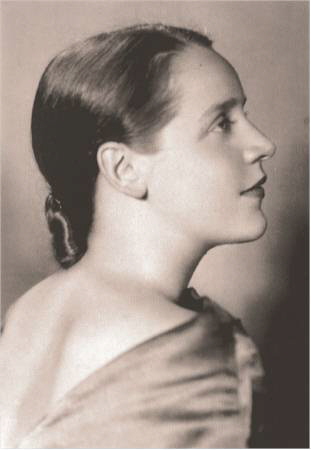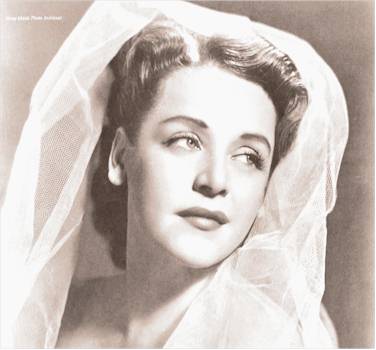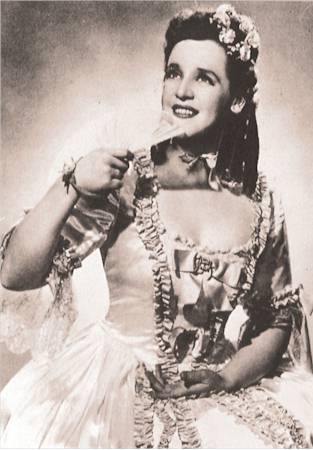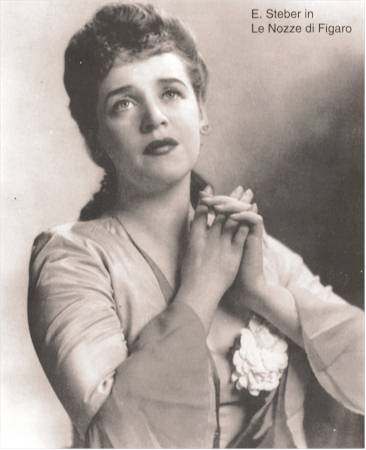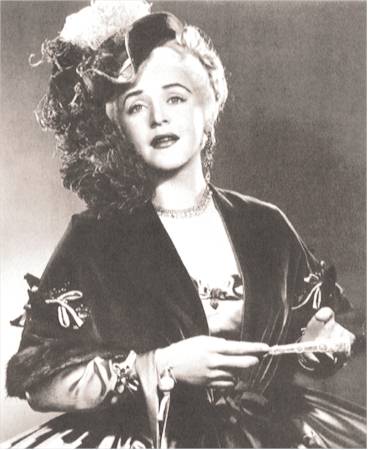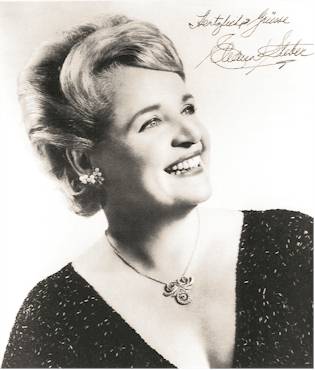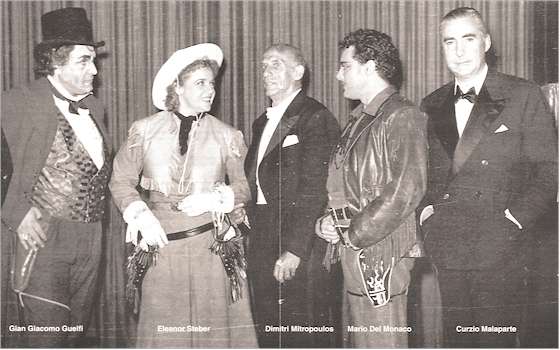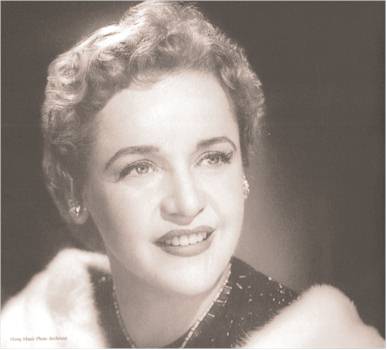American soprano, 1914 - 1990
Portrait (aged 23) Biographical notes: Eleanor Steber was born in Wheeling, West Virginia, where she grew up in a musical familiy. Her
mother was a singer and taught her voice and piano, took her to concerts, and arranged for coaching. She later studied at the New England Conservatory in Boston. At the beginning she did
a lot of radio, oratorio, and church work, but made then her debut on stage in 1936, appearing as Senta (!) with the Commonwealth Opera. In 1939, Steber went to New York to study with Paul
Althouse who had a great influence on her. In 1940 she won first prize at the Met Auditions, earning a Met contract. Her first role there was Sophie in Strauss’ Der Rosenkavalier. During the
next years she benefited from conductors such as Bruno Walter, Sir Thomas Beecham, Erich Leinsdorf and George Szell. She was a versatile artist and appeared in Italian, French and
German operas. Things began to change for her at the Met when Rudolf Bing took over the company in 1950. By this time, her career extended well beyond New York (San Francisco,
Glyndebourne, Chicago and Bayreuth). At the Met, though, she began to feel that she was being passed over for mainstream Italian roles in favor of Tebaldi and Callas. She occasionally sang
Tosca, Elisabetta, Desdemona and Manon Lescaut, but her best opportunities were the great Mozart roles. She was also the company’s first Arabella in 1955 and its first Marie in Wozzeck in
1959. In 1958 she created Barber’s Vanessa (but it was first offered to Callas and Jurinac who both declined). She was not very happy in private life either, two marriages had fallen apart and
she got into problems with alcohol and asthma. In 1961, when Bing offered her a contract that only provided “covering” roles, she declined. Thereafter she sang concerts, appeared in musicals
and taught subsequently at The Juilliard School of Music. She died in Pennsylvania in 1990.
As Donna Elvira “I learnt every role as Eleanor Steber. When I have learnt it using all the techniques at my command, gradually this role takes me over. When I finally get it on stage, I become that character. At the same time, part of me is wholly aware of the what my character is doing, because to become emotionally lost in a role is to fail to project it beyond yourself.”
As Sophie
As the Countess (one of her eight Mozart roles!)
As the Marschallin, 1949 Comment:
A number of American singers of the 40s and 50s seem to be underrated, at least in Europe. Eleanor Steber is one of them. To get an idea of her voice and artistry, I would propose to hear her in her
first recordings from 1940. They represent a young singer in brilliant form. What I particularly like is her use of the florid style as musical-dramatic expression and her
typical radiant spinning sound. She brings a very personal and completely unmannered view to every figure. She sings a wonderful rendition of Berlioz’ Les Nuits d’été. The voice is tonally and timbrally all
of a piece and rich in color. Her singing is sensitive, impeccably tuned and controlled. She was a committed Mozart singer and in her interpretations, the women are heart-felt human beings, not artificial creatures.
Preiser released excerpts from Otello, with Steber and She commissioned and premiered Samuel Barber’s symphonic poem with voice, Knoxville: Summer
of 1915. A great recording. She recorded prolifically, but committed to disc only 4 of her 52 roles in their entirety! Fortunately, many of her live performances have been released on CD.
All her recordings of arias and songs demonstrate her versatility, energy, spontaneity, and above all, her total involvement in the act of communication.
Un bel dì vedremo (Cio-Cio-San in Madame Butterfly / Puccini / “No-Name Records” / 1940)
After a superb performance of Puccini’s “La Fanciulla del West” in Florence, 1954
|
||||||||||||||||||||||||||||||||||||||||||||||||||||||||||||||||||||||||
